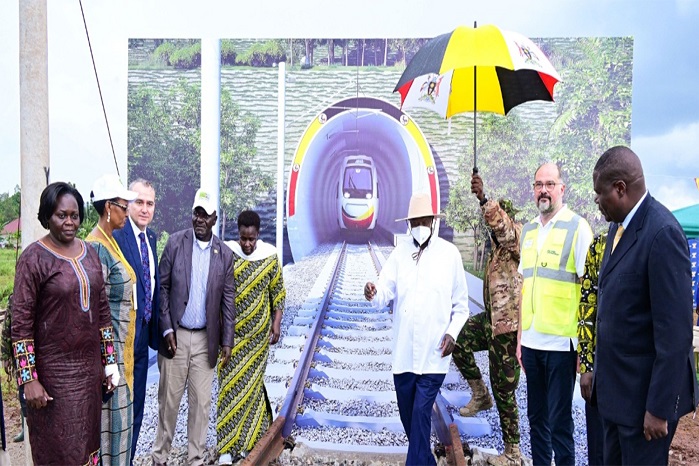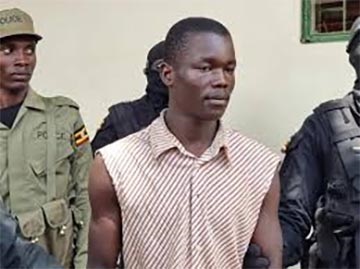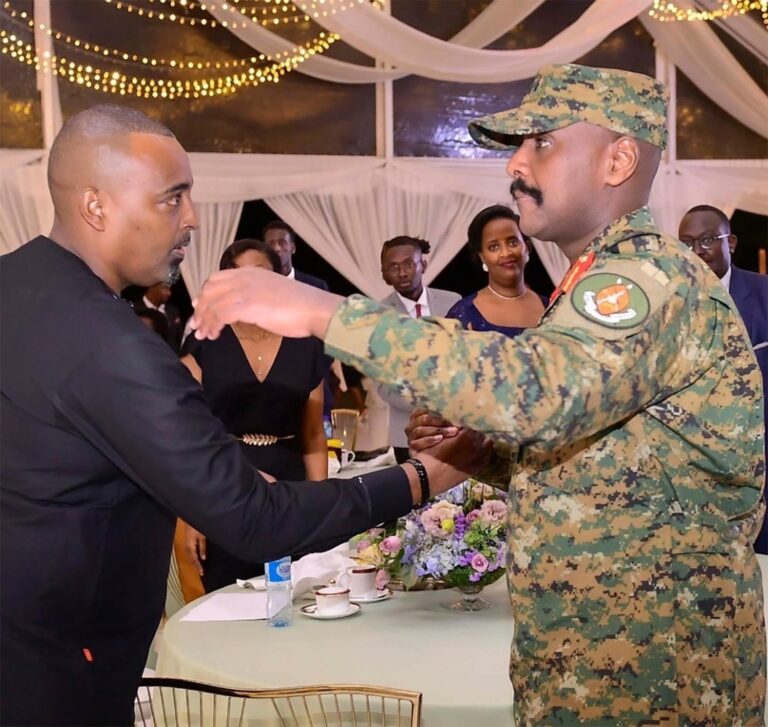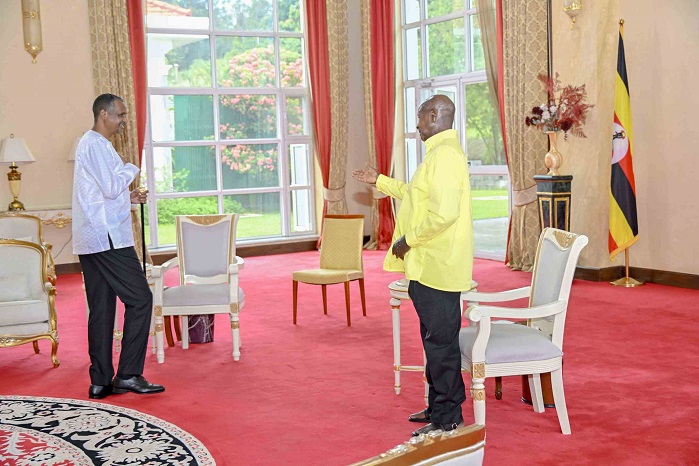
President Museveni recently launched the SGR construction project in Tororo, Eastern Uganda
HABARI DAILY I Kampala, Uganda I Construction of the Standard Gauge Railway (SGR) all the way from Kenyan border to Kampala then DR Congo is facing uncertainty after the arrest and prosecution of the top managers of Yapi Merkezi.
Habari Daily has reliably learnt that Board chairman Mustafa Başar Arıoğlu and board members Erdem Arıoğlu and Sami Özge Arıoğlu were arrested in Istanbul.
The arrests have caused uncertainty about the future of the $3 billion Uganda SGR project, where Yapı Merkezi is a key contractor.
Officials from Yapi Markezi recently proceeded with laying ground for the SGR upon receiving an advance payment of $75million (about Shs 270 billion) from the ministry of finance.
The Malaba-Kampala section of the 273 km SGR was launched in November 2024 by President Yoweri Museveni, and is expected to take four years to complete.
The entire 1,724 kilometres (1,071 mi) SGR in is intended to ease the transfer of goods between the port of Mombasa and the Ugandan capital of Kampala, and subsequently to Kigali in Rwanda, and to Beni in the Democratic Republic of the Congo and to Nimule and Juba in South Sudan.
Corruption allegations
At the center of the Yapi Markzi dilemma are corruption allegations which have brought about mounting legal troubles in Turkey.
“Three top executives were arrested as part of a broader investigation into procurement practices, bribery, and organized crime within Istanbul’s Metropolitan Municipality,” said an Istanbul based news channel.
These arrests have raised concerns about the integrity of the company’s operations and the potential impact on ongoing projects, including the Uganda SGR project.
Some Yapı Merkezi bosses have reportedly turned state witness, providing statements to prosecutors related to the investigation, specifically concerning the Kirazli-Halkali metro project in Istanbul.
Potential Impact
The legal troubles could affect Yapı Merkezi’s ability to secure future contracts, complete existing projects, and maintain its reputation as a major international construction firm.
“The allegations against Yapı Merkezi could negatively impact the project’s reputation and raise questions about the integrity of the partnership,” said Ronald Kyeyune, a Kampala based economist.
He however pointed out that after the signing of the execution contracts between Kampala and the Turkish contractor, the company can only proceed and execute the SGR project.
Efforts to get a comment from the Yapi Merkezi managers at the Kampala office were futile, since their known telephone contact was off.
Yapı Merkezi is also involved in other major international projects, including the 1915 Çanakkale Bridge, the Eurasia Tunnel, and various projects in Bosnia, Slovenia, Hungary, UAE, Saudi Arabia, Ethiopia, Kenya, and Tanzania.




